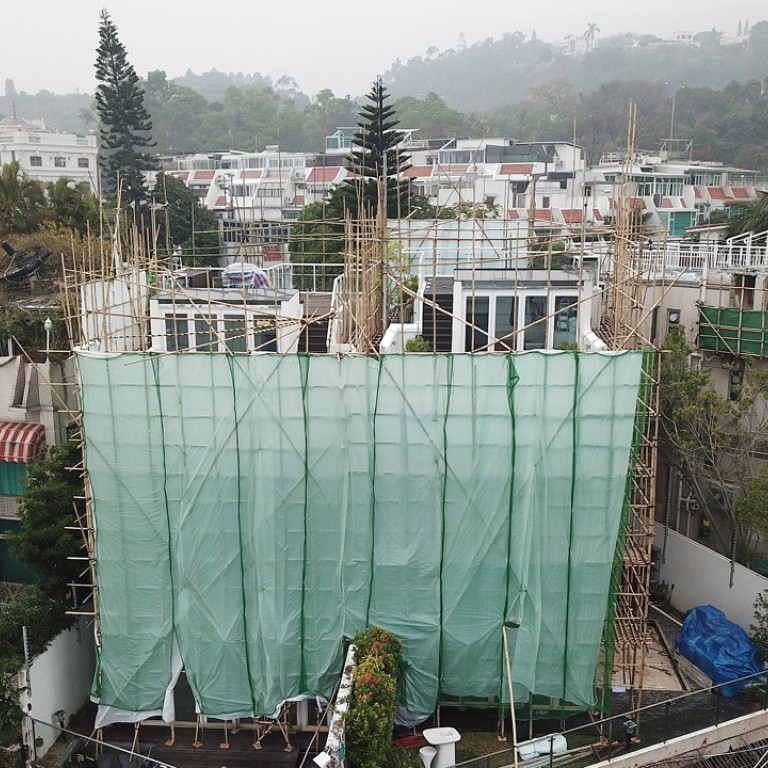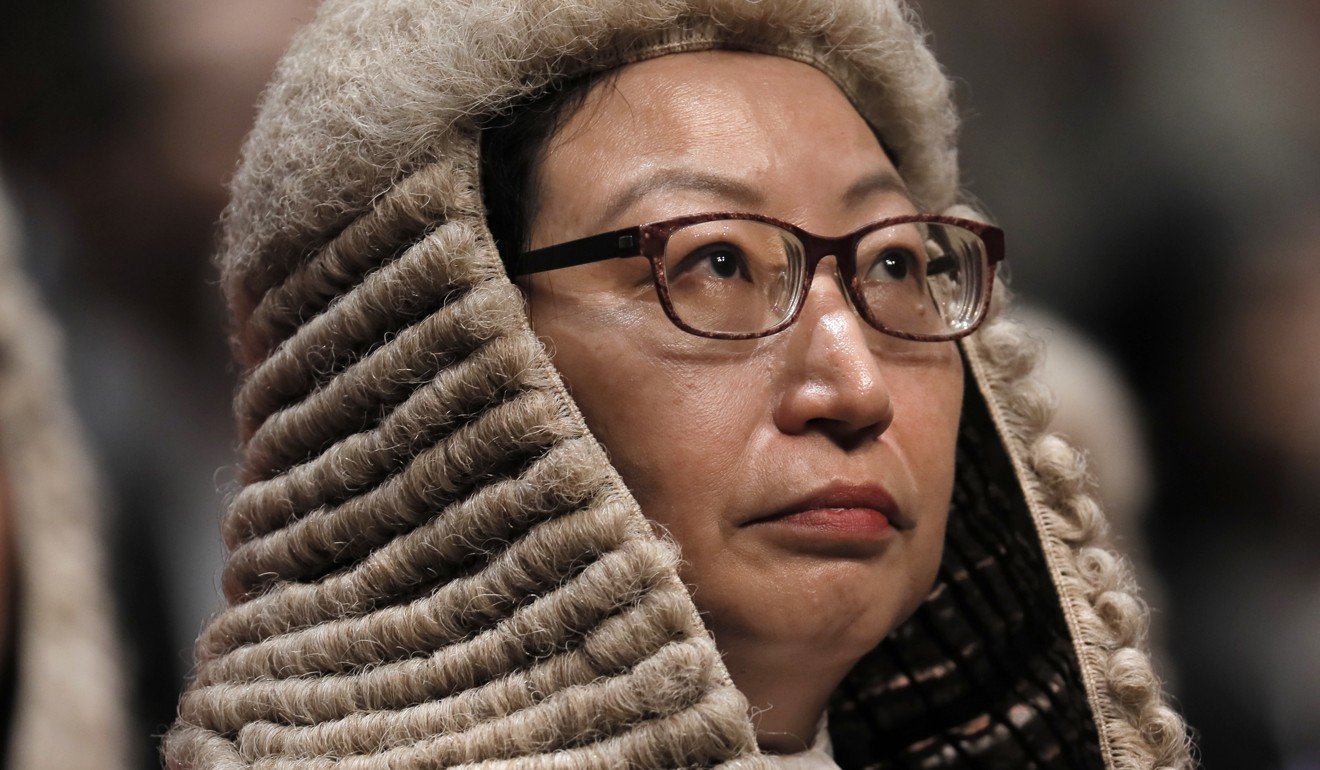
Illegal structures saga for Hong Kong’s justice chief comes to a close, as pan-dems plan to grill her fizzles out
A series of manoeuvres by pro-establishment lawmakers on Thursday scuppered pan-dems plans to keep Teresa Cheng in the hot seat, with a motion to summon her to Legco likely to lapse
The pan-democratic camp’s plan to grill beleaguered justice minister Teresa Cheng Yeuk-wah again over unauthorised structures in her properties fizzled out on Thursday, as manoeuvres by pro-establishment lawmakers thwarted their attempts to drag out the scandal.
Nearly 30 legislators supportive of the government – an unexpectedly large number – requested to speak after three pan-democrats backed lawmaker Charles Mok’s motion to summon Cheng to the Legislative Council on February 28.
At 7.35pm, Legco president Andrew Leung Kwan-yuen adjourned the meeting, as there were still 16 lawmakers in the queue and the debate on the motion could not be finished by 8pm, the scheduled ending time.
The 70-member Legco is now down to 64 members – after six were stripped of their seats over an oath-taking saga – and the bulk of them support the establishment.
The motion is expected to lapse as lawmakers will only meet again on February 28, when the Financial Secretary Paul Chan Mo-po gives this year’s budget speech.
Since taking office on January 6, Cheng has been on the defensive. The Buildings Department found 10 illegal extensions in adjoining luxury homes in Tuen Mun belonging to the former barrister and her engineer husband and subsequently identified 10 more at Cheng’s flat in Repulse Bay and two units in Sha Tin.
Chief Executive Carrie Lam Cheng Yuet-ngor had stoutly defended Cheng, and earlier this week, pro-establishment lawmakers told the Post they had been instructed to vote down opposition efforts to summon Cheng to Legco.
Opinion: Home improvements should not be illegal in Hong Kong – renovate the rules on illegal structures instead
Last week, Cheng survived two no-confidence motions with the help of pro-establishment lawmakers.
At Thursday’s Legco meeting, lawmakers spent about seven hours debating two government bills, on the sale of alcohol and waterworks respectively.
The pan-democrats criticised their rivals for “filibustering and dragging out” the debate, with Mok saying: “It’s obvious that the pro-establishment camp simply did not want to put it on the record that they voted down a motion to summon Cheng.”

But the other side disagreed.
“There was no such strategy. Basically we want to speak on the issue, and make our stance clear regardless of whether it could be put to vote or not,” Holden Chow Ho-ding of the Democratic Alliance for the Betterment and Progress of Hong Kong said.
Pan-dems maintained that there were still outstanding matters for Cheng to address in Legco.
James To Kun-sun, of the Democratic Party, said Hong Kong’s international image was at stake.
“Some people might think that we pan-democrats just want to attack the government … but I am saddened too to see her losing her credibility when we need capable ministers,” To said.
But pro-establishment legislators and Chief Secretary Matthew Cheung Kin-chung, who addressed the legislature on Cheng’s behalf on Thursday, said there is no need for that and it was time to move on.
Opinion: Teresa Cheng must not remain blind to Hong Kong people’s high expectations of government officials
Cheung said: “There is no evidence to suggest that the incident would hinder her [ability] to perform her duties as justice secretary.”
Meanwhile, according to a Chinese University poll commissioned by the Path of Democracy think tank, about 1,000 local respondents gave an average score of 4.98 out of 10 to the implementation of “one country, two systems”, the governing principle under which Hong Kong is given a high degree of autonomy from Beijing. It was 0.01 points lower than last year’s score, when the poll was done for the first time.
The survey is part of the think tank’s efforts to develop the “One Country, Two Systems Index” to track perceptions of governance. After the views of overseas respondents were included, the average score for this year rose to 6.51 points.

